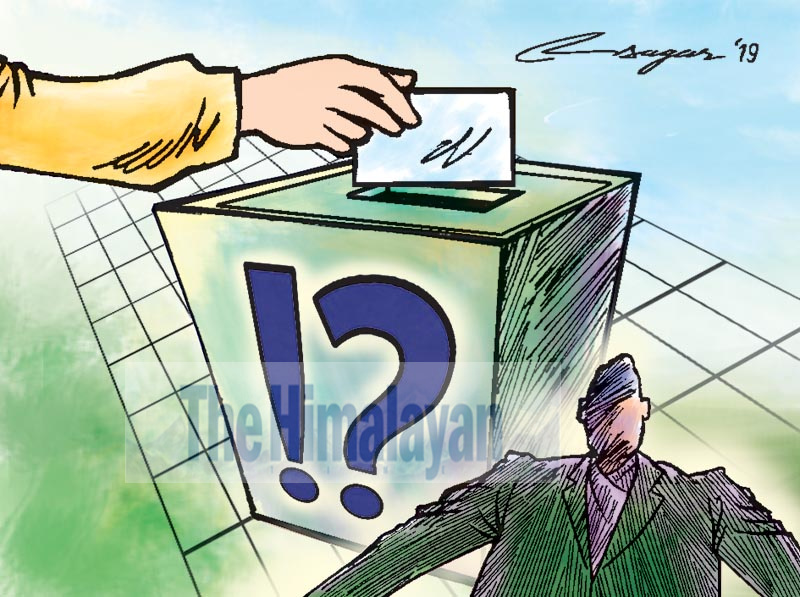Safeguarding democracy: Constant vigilance needed
Safeguarding democracy lies not in blindly following an individual but in creating solid democratic institutions founded on democratic principles that can thwart any attempt to concentrate powers on to an individual
Writing during the Great American Revolution, Thomas Jefferson, one of the founding fathers of the United States of America, contended that the price that each individual has to pay for democracy is constant vigilance. His thoughts regarding democracy and freedom ring true to this day despite his inability to extend those freedoms beyond white men at the time.
For Jefferson, democracy is not a spectator sport. It requires the active and constant participation of the people in a polity that come together to exercise their fundamental rights in a democracy to decide who governs them. In the event that the majority dislike the way of governance, they have the power to elect a new ruler for themselves. It is evident that the majority is the most powerful cluster in a democratic form of government, with the greater decision-making power lying in their hands.
However, is the majority always always right?
History seems to strongly suggest not. There seems to have been so much fear among politicians and lawmakers of the tyranny of the majority ever since democracy was established that they consciously worked on creating mechanisms to safeguard democracy against such an assault. A great example here is the Electoral College in the US with the power to elect the president and the vice-president there. Although popular elections are held in the US as an exercise in democracy, the deciding votes are cast by 270 electors from the Electoral College to make or break a presidency.
So, how does the Electoral College act against populist sentiments? It does so by voting independently from the populous. It is usually expected that an elector from a state will mirror the popular votes of his state. However, an elector can go against the popular votes in his state and be “faithless” by choosing a candidate that was not chosen by the majority of the people from his state if he truly believes that the people have not really chosen the best candidate available to them. So, by exercising his discretion an elector can change the outcome of the election.
Donald Trump would not have become the President if some of the electors from the group of 538 had not voted for and gone faithless. And although Hillary Rodham Clinton won the popular votes, she failed to secure the required Electoral College votes to create history.
A perilous example of the utter distortion of the popular will is the election in the Weimar Republic of Germany in 1933, which saw the ascent of Adolph Hitler to power. Appointed chancellor by the then president, Paul Von Hindenburg, Hitler soon after issued the Reichstag Fire Decree, which suspended civil liberties in Germany, and pushed the Enabling Act in the Reichstag that gave him plenary power to pass any decree and laws in Germany without any approval from the Reichstag or any kind of judicial review from the courts.
Thus Adolph Hitler had become a despot beyond the reach of the country’s constitution, courts or the parliament. So, what does it take to safeguard democracy against tyranny and dictatorship? The answer, writ large in history, lies not in glorifying and blindly following an individual but in creating and conserving solid democratic institutions founded on democratic principles that can thwart the attempt of an individual or group to concentrate powers on to an individual. There inherently has to be a provision for the creation and operation of an equally powerful and independent executive, legislative and judiciary that can check and balance each other’s power and establish limits on individual and institutional excesses.
There has to be a democratic constitution that all the organs of the state adhere to. Within the executive branch, there have to be advisors and institutional leaders that can guide the head of the government to make the right decisions with the courage to oppose any excesses. Within the legislature, there has to be a healthy opposition that is not lazy to voice the concern of the minority and act as a strong force of resistance against enacting laws that undermine democratic principles.
The judiciary should have sagacious judges who value and protect the democratic principles enshrined in the constitution and make decisions to check and balance power among all state institutions. The constitutional bodies should enjoy complete independence from all other branches of government so that they can dispense the duties without fear of persecution.
A sound democracy also takes a well-informed civil society that can debate and reflect on what works best for them with the gumption to make those choices when necessary coupled with the gall to hold their elected leaders to account when they go wrong and continually forge a better polity by choosing a better leader every election cycle.
And lastly, there has to be a periodic election cycle with an independent election commission that ensures that citizens can vote free of fear and any undue influences to determine their own government. Since it is the citizens who get to vote, there has to be a clear provision of delineating who the citizens of a nation are so as to avoid any undue external influences from adversely affecting the election outcome.
Those who do not learn anything from history are bound to repeat it. Hopefully, we will not condemn ourselves and our people to repeating the worst stories that are etched in the annals of history.






